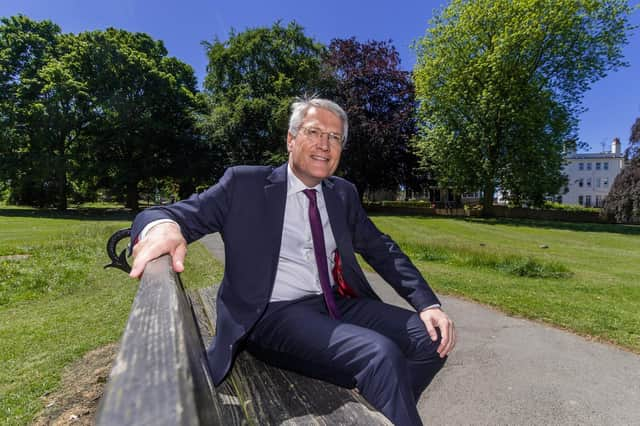OPINION: We are all being affected by the turmoil - Harrogate and Knaresborough MP Andrew Jones


While hundreds and hundreds of people email MPs about ‘partygate’ over the same period a negligible number have contacted us asking what the United Kingdom is doing to prevent war breaking out in Eastern Europe. That isn’t to say that people don’t care about the turmoil that would, and may by the time you read this has already, be caused by such a war. And that turmoil would have an effect here on our everyday lives.
Although the United Kingdom isn’t as dependent as many, Russian gas fuels much of the continent. Gas wholesale prices have already leapt up. It is difficult to see how a war with Ukraine supported diplomatically and militarily by most of the rest of Europe will do anything other than accelerate this trend. Should an invasion occur and the international community fail to respond to support the consequences would be grave. Despite all our words, our military support and our stated readiness to impose sanctions we would have shown ourselves impotent in the face of unprovoked aggression.
Advertisement
Hide AdAdvertisement
Hide AdAlready we have seen huge corrections in global stock markets in anticipation of conflict. We may not think of this as affecting most of us but our pensions depend on investments. We are all being affected. There are many other consequences, some of which we won’t even realise until they happen, but most tragic is the loss of life we would surely see once war begins. The issue at the core of all this would appear to be Russia’s fear that its near neighbour Ukraine may join NATO – the treaty organisation set up after World War Two to prevent future conflict.
But NATO members already border with Russia – Estonia, Latvia, Lithuania and Poland. Why are Russian troops not massing on these borders? Or does that demonstrate the strength of NATO where an attack on one is deemed an attack on all?
It is tempting to think of the sabre-rattling as an exercise in aggressive diplomacy, a threat that will never be used in order to gain concessions without war. But why should a sovereign country bend and change its domestic policies to suit the will of a belligerent neighbour? This all has echoes of a past the some still remember and of which we all know through the history books. The United Kingdom is playing its part in supporting Ukraine and not just with supportive words important though they are. For years we have supported Ukraine’s security and defence. The UK has trained over 22,000 members of the Ukrainian army and since 2019 this operation has expanded to help Ukraine build up naval capability. Further support includes the supplying of light, anti-armour, defensive weapon systems.
The British Army leads the NATO Battlegroup in Estonia and has troops stationed in Poland. Royal Marines have also deployed to Poland to support the Polish Armed Forces with joint exercises in the face of ongoing tensions on the Ukrainian border. We have introduced new legislation to toughen the UK’s sanctions regime in response to Russian aggression against Ukraine. Under the new regime a much broader range of individuals and entities can be sanctioned due to their significance to the Kremlin. These powers mean that the UK is ready to move against the Russian state should Ukraine be invaded. An expansionist Russia and war in Europe moves the world from major worry to significant crisis. I rarely use this column to discuss international matters preferring to highlight matters closer to home and support constituency-based organisations. I hope by the time you read this the situation will have begun to de-escalate.